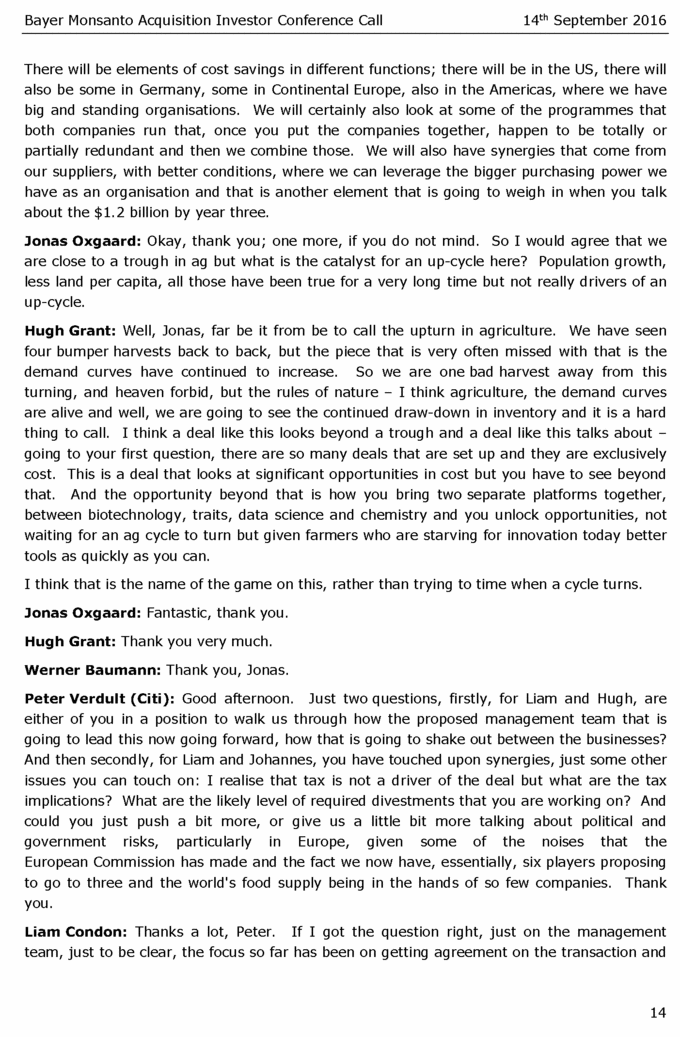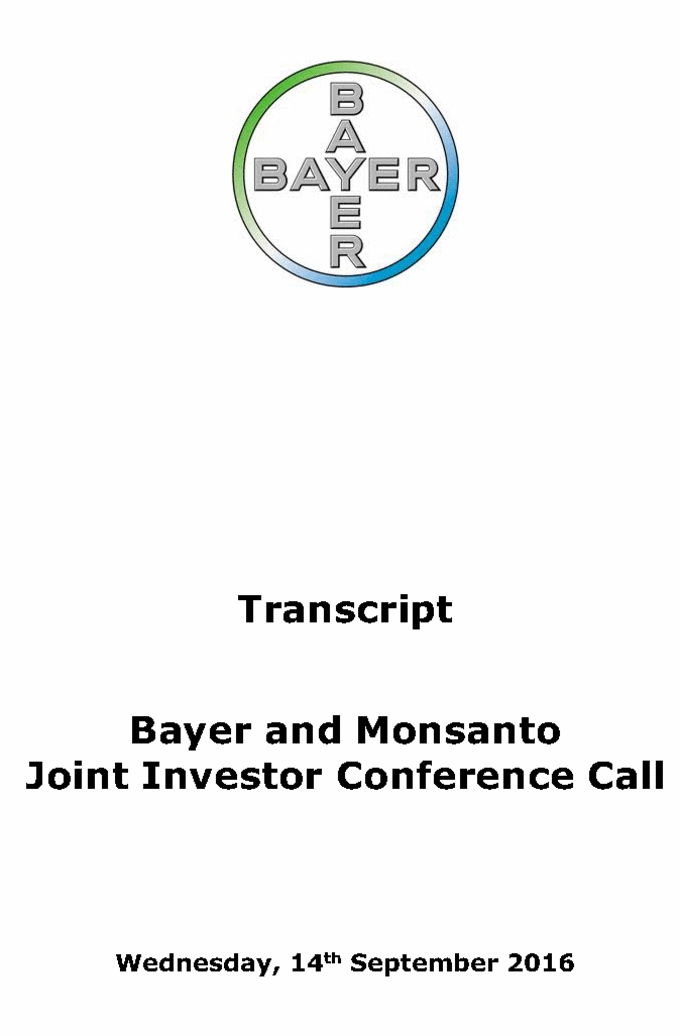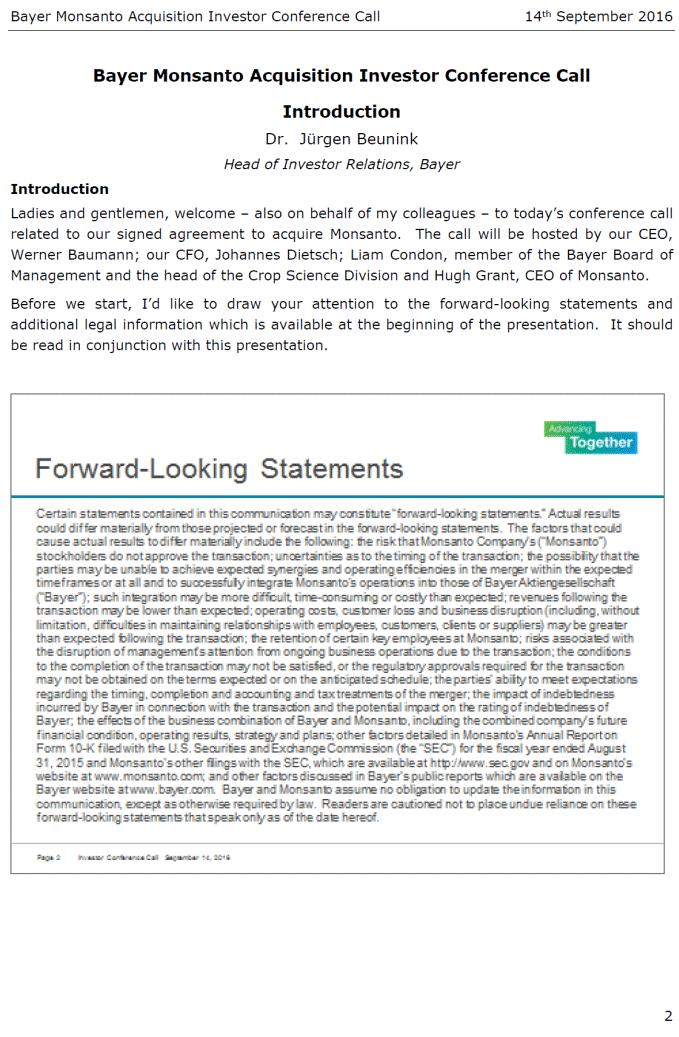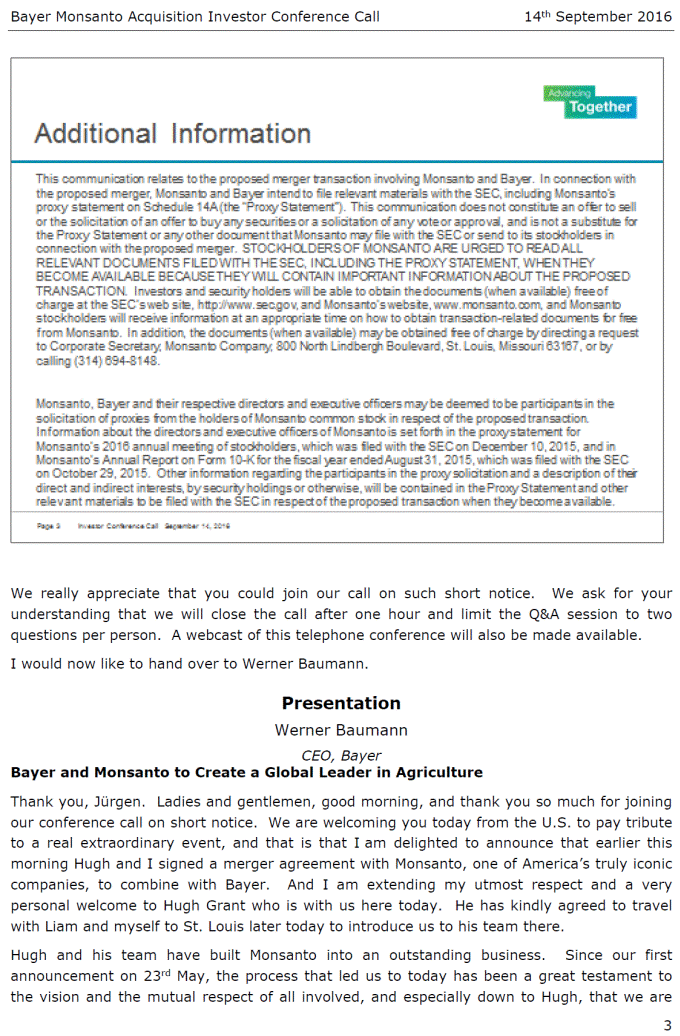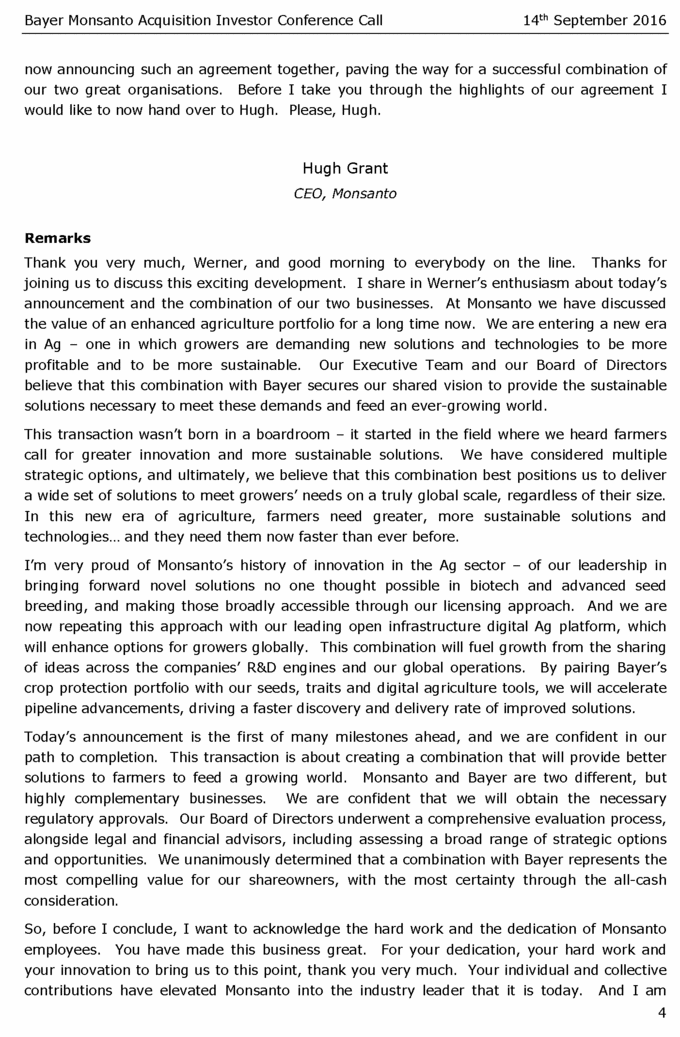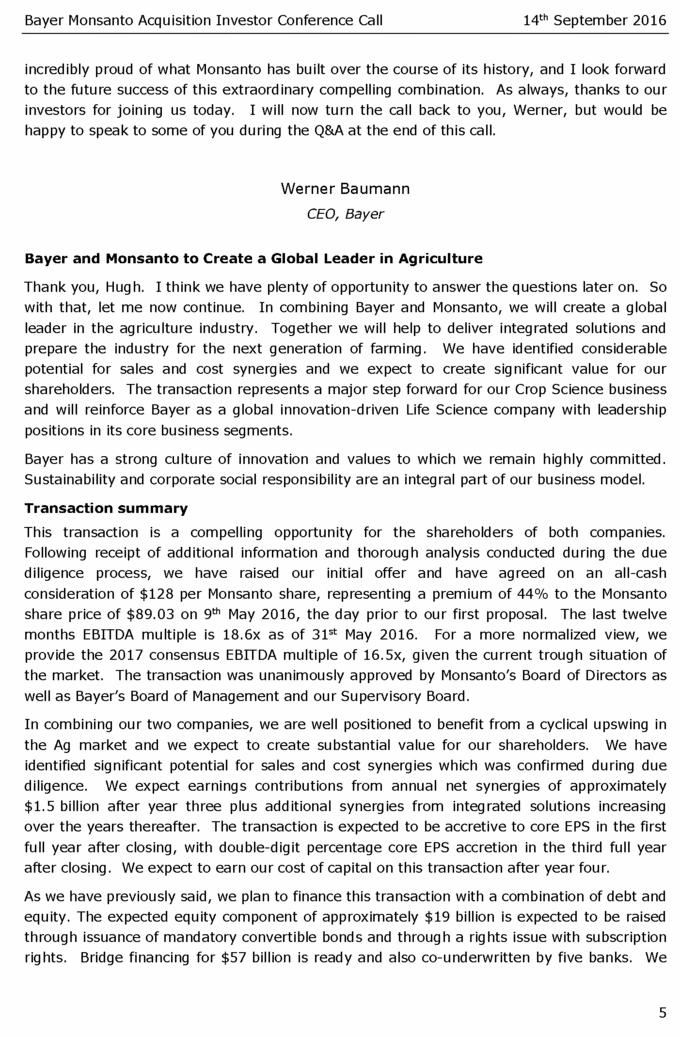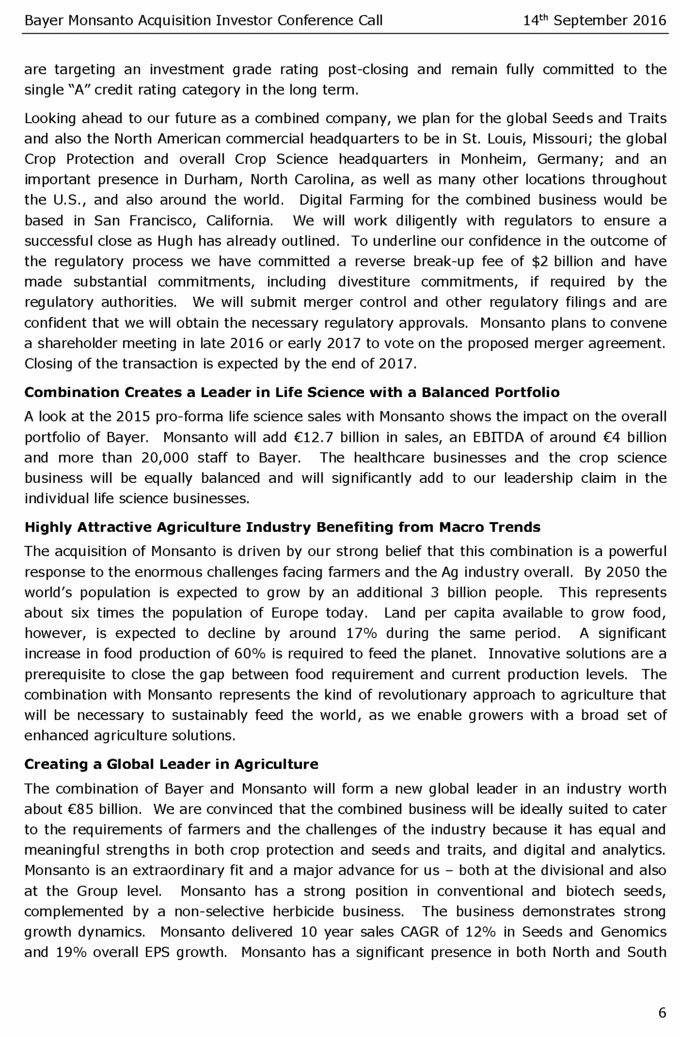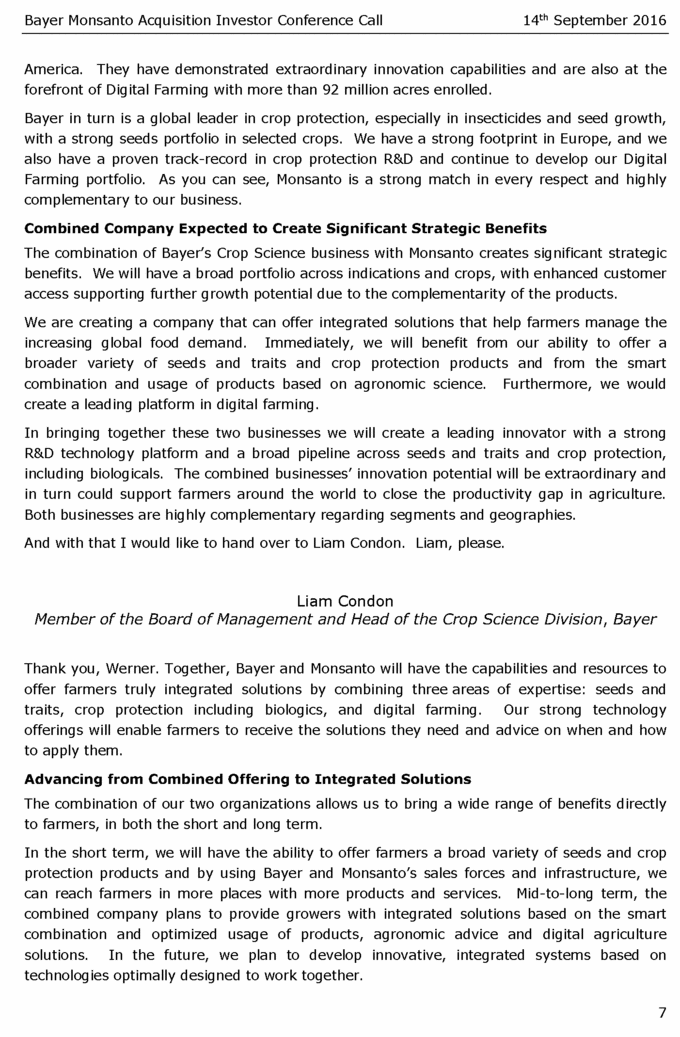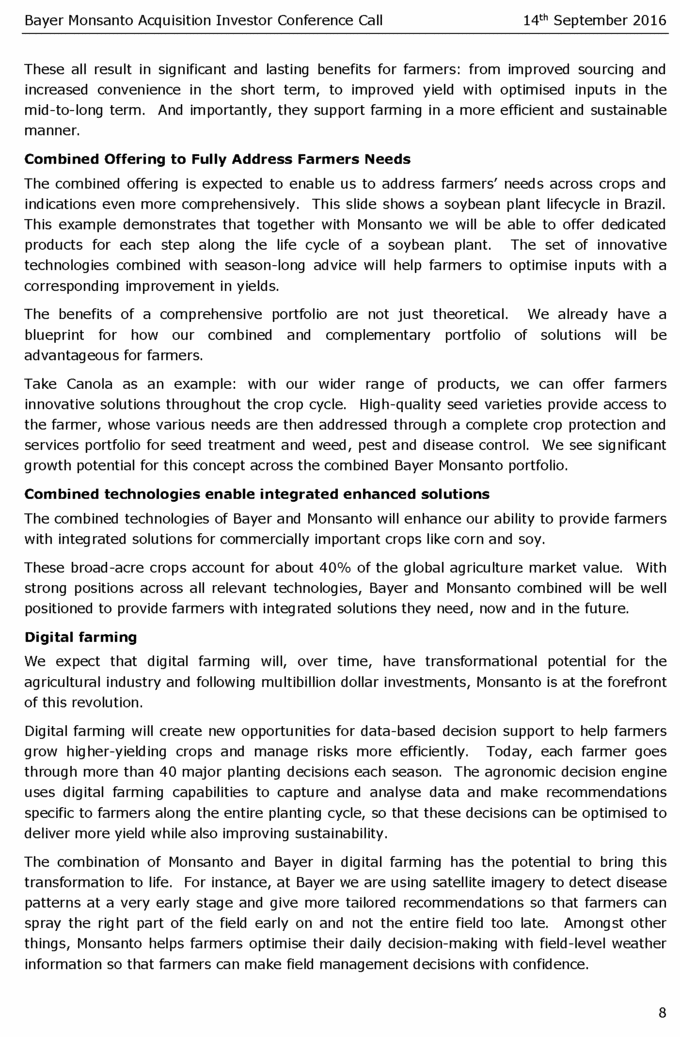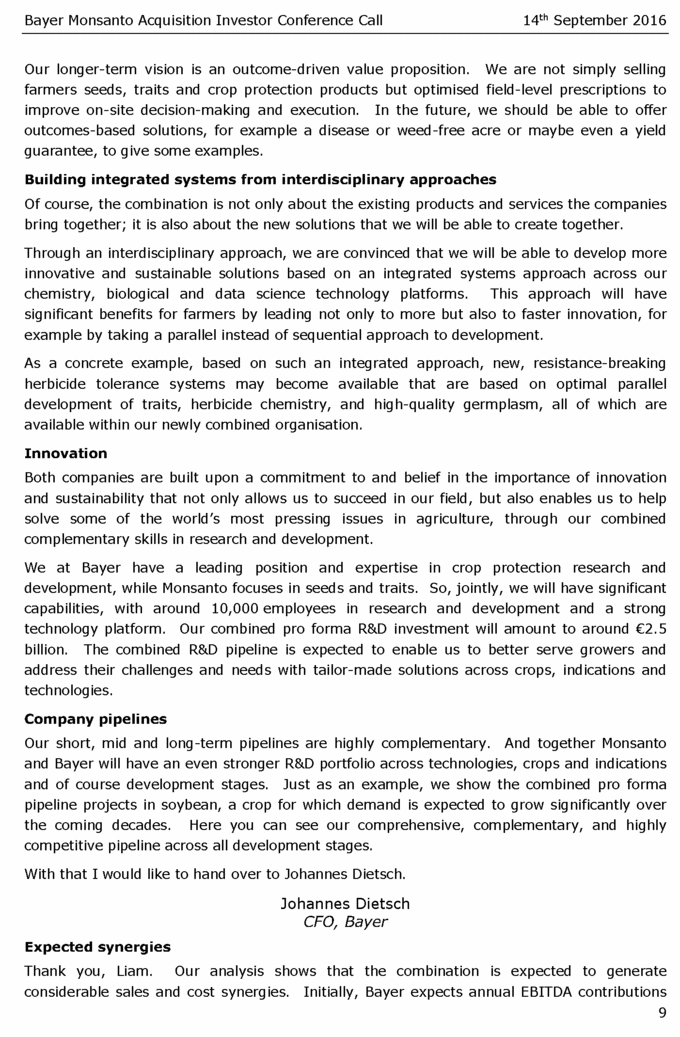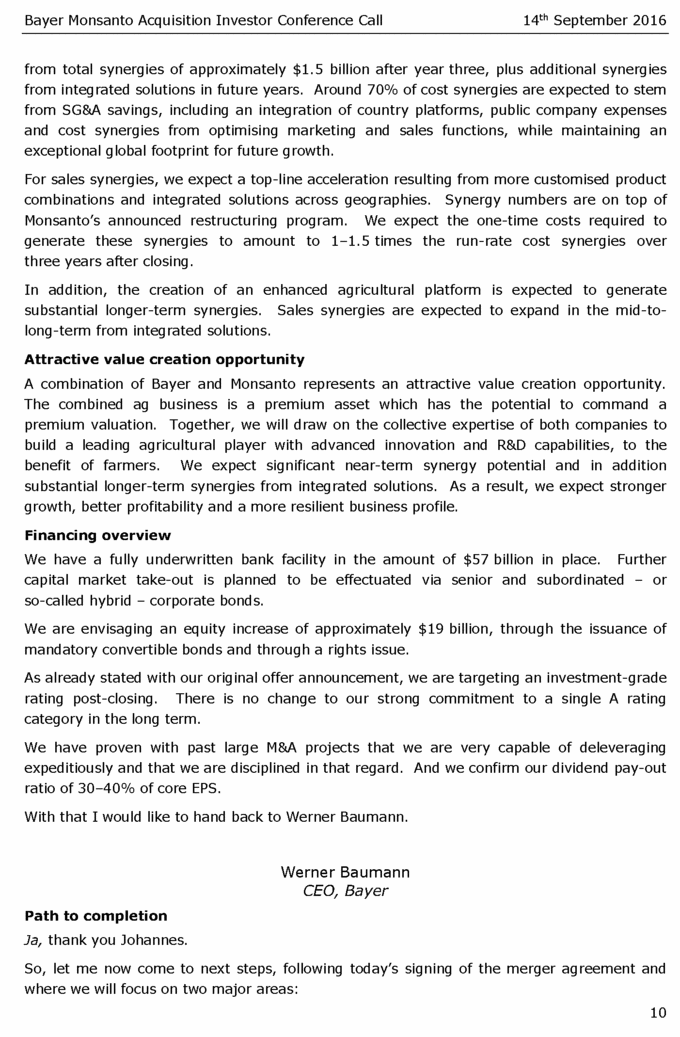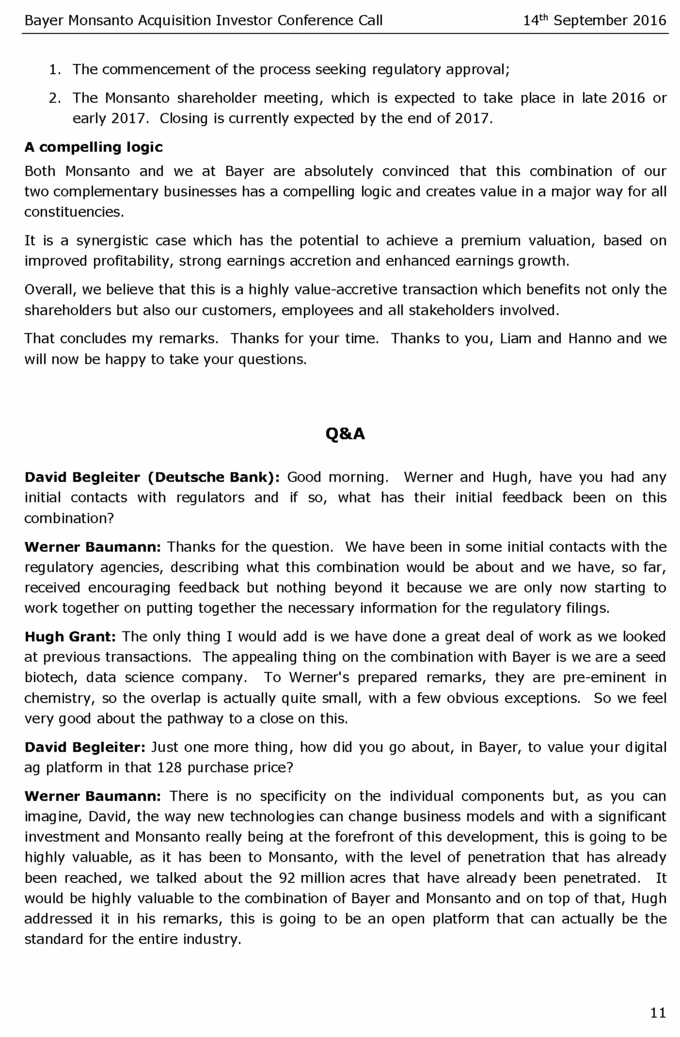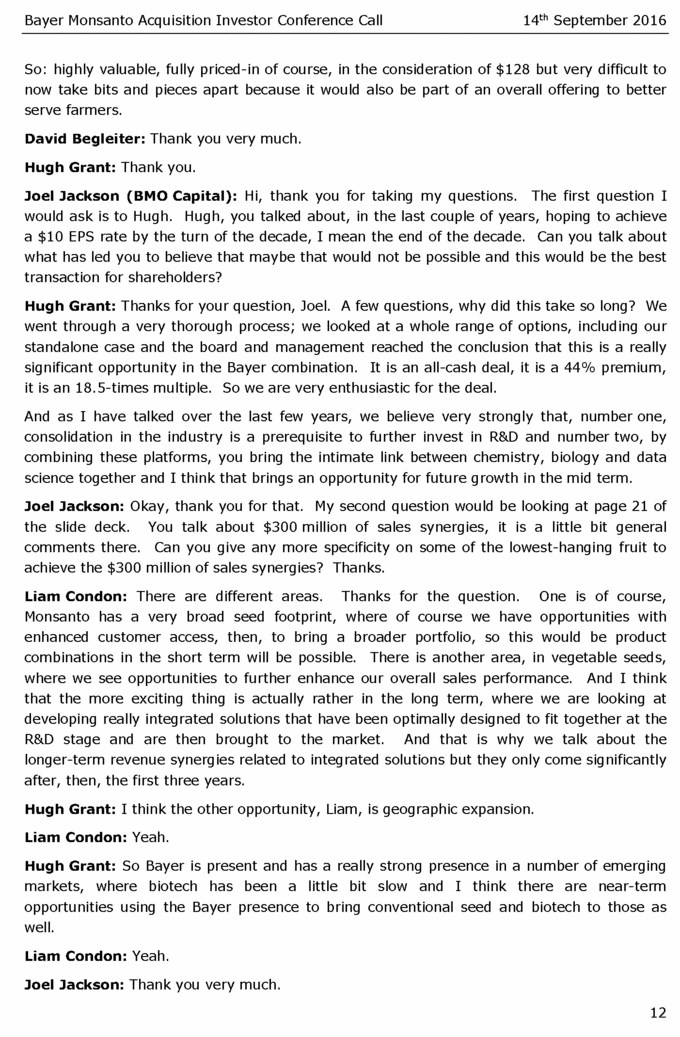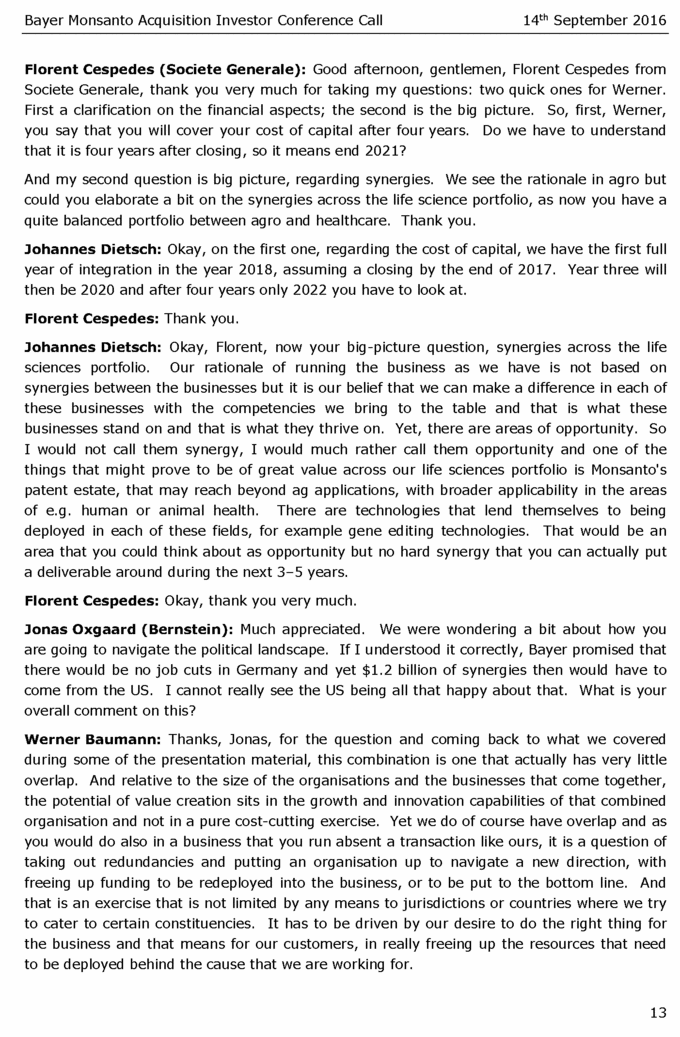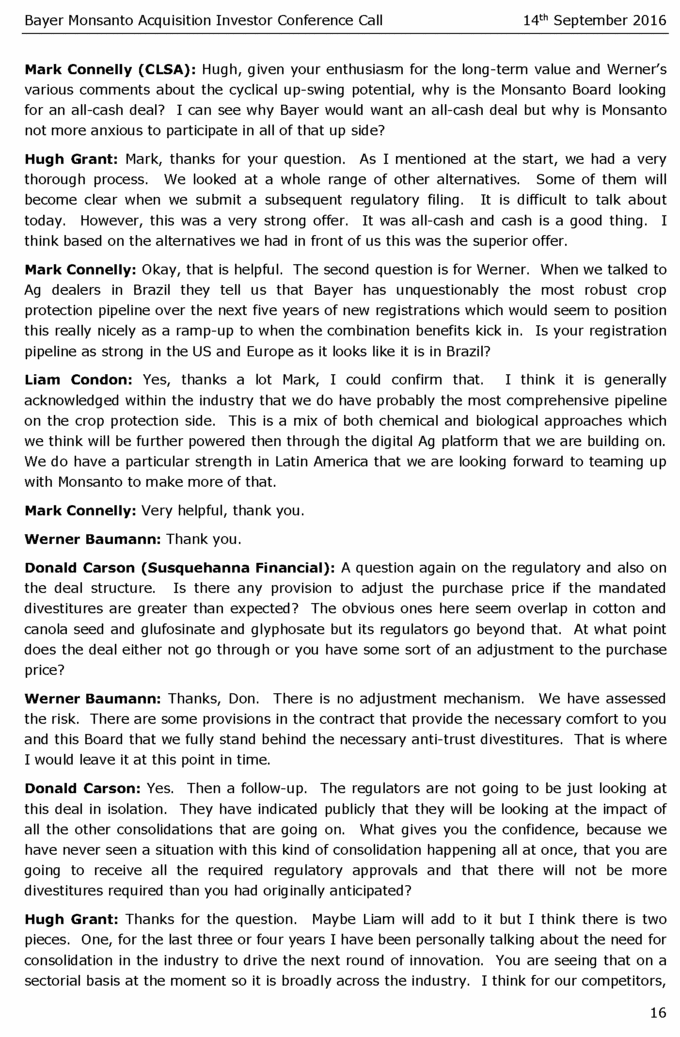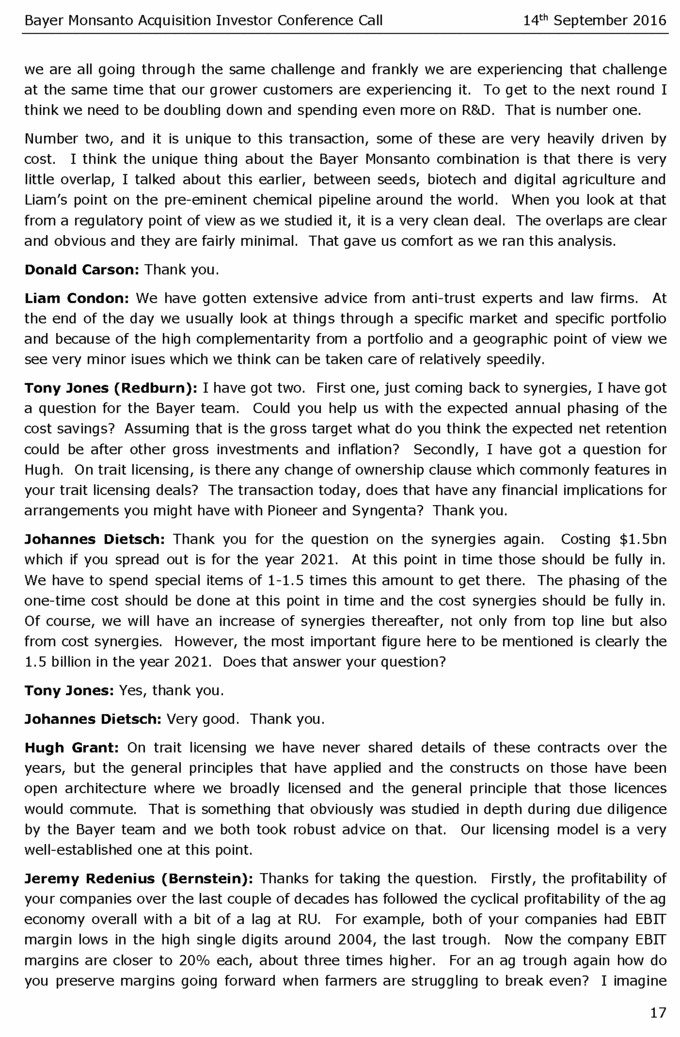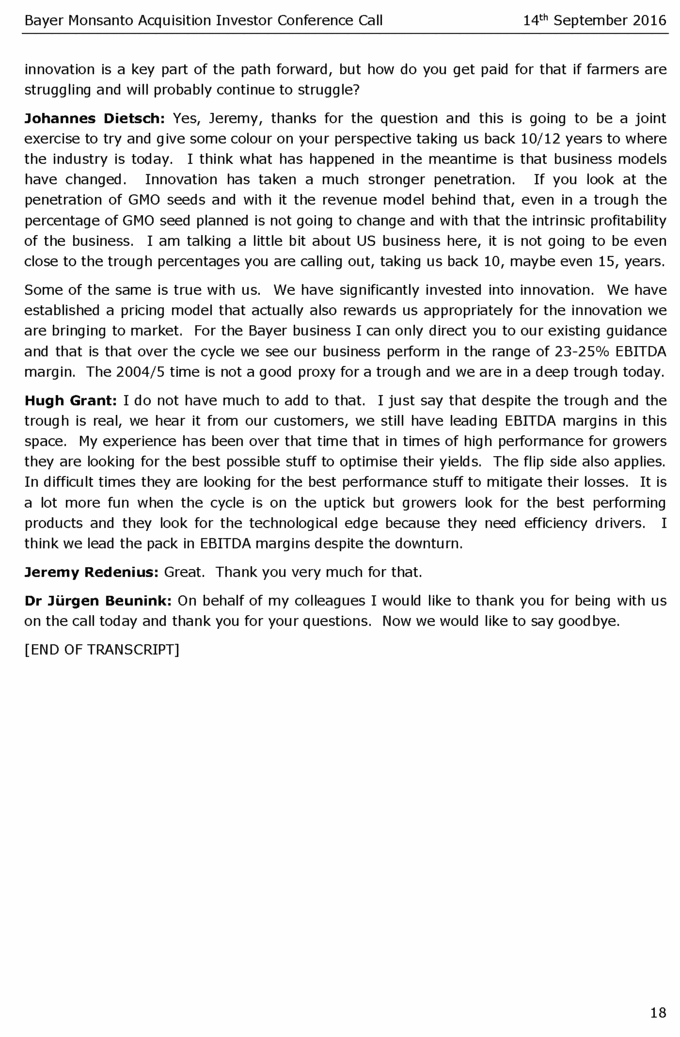Bayer Monsanto Acquisition Investor Conference Call 14th September 2016 There will be elements of cost savings in different functions; there will be in the US, there will also be some in Germany, some in Continental Europe, also in the Americas, where we have big and standing organisations. We will certainly also look at some of the programmes that both companies run that, once you put the companies together, happen to be totally or partially redundant and then we combine those. We will also have synergies that come from our suppliers, with better conditions, where we can leverage the bigger purchasing power we have as an organisation and that is another element that is going to weigh in when you talk about the $1.2 billion by year three. Jonas Oxgaard: Okay, thank you; one more, if you do not mind. So I would agree that we are close to a trough in ag but what is the catalyst for an up-cycle here? Population growth, less land per capita, all those have been true for a very long time but not really drivers of an up-cycle. Hugh Grant: Well, Jonas, far be it from be to call the upturn in agriculture. We have seen four bumper harvests back to back, but the piece that is very often missed with that is the demand curves have continued to increase. So we are one bad harvest away from this turning, and heaven forbid, but the rules of nature – I think agriculture, the demand curves are alive and well, we are going to see the continued draw-down in inventory and it is a hard thing to call. I think a deal like this looks beyond a trough and a deal like this talks about – going to your first question, there are so many deals that are set up and they are exclusively cost. This is a deal that looks at significant opportunities in cost but you have to see beyond that. And the opportunity beyond that is how you bring two separate platforms together, between biotechnology, traits, data science and chemistry and you unlock opportunities, not waiting for an ag cycle to turn but given farmers who are starving for innovation today better tools as quickly as you can. I think that is the name of the game on this, rather than trying to time when a cycle turns. Jonas Oxgaard: Fantastic, thank you. Hugh Grant: Thank you very much. Werner Baumann: Thank you, Jonas. Peter Verdult (Citi): Good afternoon. Just two questions, firstly, for Liam and Hugh, are either of you in a position to walk us through how the proposed management team that is going to lead this now going forward, how that is going to shake out between the businesses? And then secondly, for Liam and Johannes, you have touched upon synergies, just some other issues you can touch on: I realise that tax is not a driver of the deal but what are the tax implications? What are the likely level of required divestments that you are working on? could you just push a bit more, or give us a little bit more talking about political And and the government risks, particularly in Europe, given some of the noises that European Commission has made and the fact we now have, essentially, six players proposing to go to three and the world's food supply being in the hands of so few companies. Thank you. Liam Condon: Thanks a lot, Peter. If I got the question right, just on the management team, just to be clear, the focus so far has been on getting agreement on the transaction and 14
